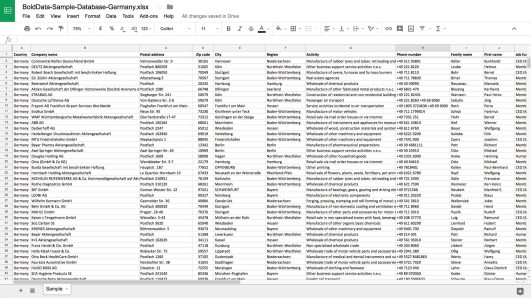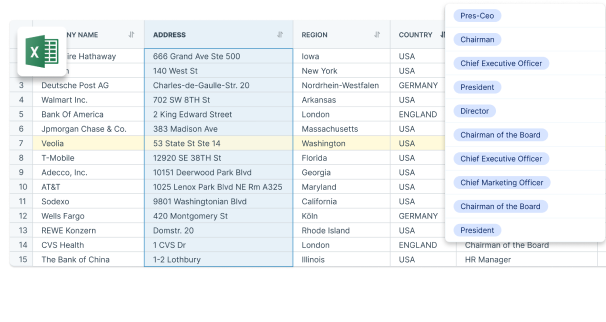Choosing the right data vendor can be a daunting task, given the vast number of options available in the market. The vendor you choose can impact your business operations significantly, and making an informed decision is essential.
In this comprehensive guide, we’ll explore the factors you need to consider when choosing a data vendor.
1. Identify Your Data Needs
Before looking for a data vendor, you need to identify your data needs. Determine what type of data you need, how much, and the frequency at which you need it. Do you need demographic data, firmographic data, or both? Do you need data on a specific industry or geography? Identifying your data needs will help you narrow your search and find a vendor that can provide the data you need.
2. Evaluate Data Quality
Data quality is crucial when it comes to making informed decisions. You must ensure that the data you receive is accurate, reliable, and up-to-date. Evaluate the vendor’s data quality by reviewing their data collection methods, data processing techniques, and data verification processes. You can also ask for sample data to verify its accuracy.
3. Consider Data Coverage
Data coverage refers to the breadth and depth of data a vendor provides. It’s essential to consider the vendor’s data coverage scope to ensure that it meets your business needs. Some vendors may have comprehensive data coverage in certain geographies or industries, while others may have a broader coverage area. Evaluate the vendor’s data coverage and ensure it aligns with your business needs.
4. Analyze Data Delivery Methods
Data delivery methods refer to how the vendor provides data to their clients. Some vendors provide data through APIs, while others provide data through file transfers. Evaluate the vendor’s data delivery methods and ensure they align with your business requirements. You also need to consider the frequency at which you need data updates and ensure that the vendor can provide data updates in a timely manner.
5. Assess Data Security Measures
Data security is critical when it comes to handling sensitive information. You must ensure the vendor has adequate data security measures to protect your data. Evaluate the vendor’s data security measures by reviewing their security policies, data encryption techniques, and access control measures. You can also ask for their security certifications to verify their security standards.
6. Check for Customer Support
Choosing a data vendor is not a one-time process. You’ll need ongoing vendor support to ensure you’re getting the data you need. Evaluate the vendor’s customer support services, including their response time, availability, and expertise. You can also review customer feedback and testimonials to assess their level of customer service.
7. Consider Pricing and Contract Terms
Pricing is an essential factor when it comes to choosing a data vendor. You need to ensure that the vendor’s pricing aligns with your budget and that there are no hidden costs. Evaluate the vendor’s pricing model, including the cost per record, minimum purchase requirements, and data update fees. You must also review the vendor’s contract terms, including the contract length, termination clauses, and data usage restrictions.
Reach Out to A Trustworthy Data Vendor
Choosing the right data vendor can significantly impact your business operations. It’s essential to consider factors such as data quality, coverage, delivery methods, security measures, customer support, pricing, and contract terms. Following these guidelines, you can choose a vendor that meets your business needs.
At BoldData, you no longer need to look at other data vendors! We provide accurate, high-quality, safe, and affordable company data that you can use to scale your business!
Contact us for free tailor-made advice and an independent quote. Please call +31(0)20 705 2360 or send an e-mail to info@bolddata.nl.

